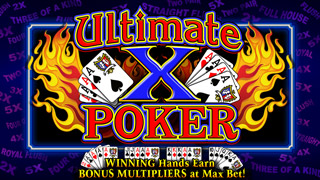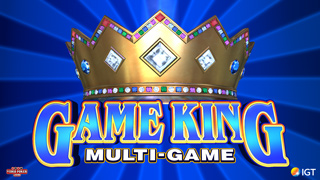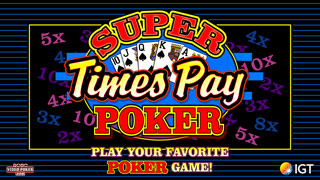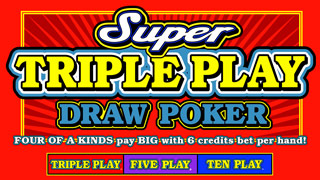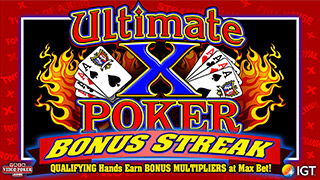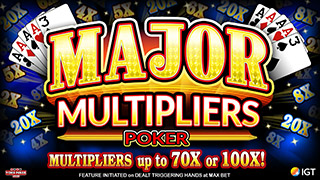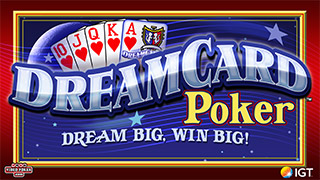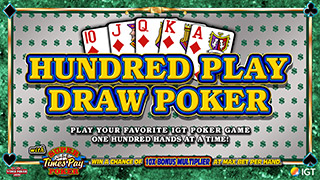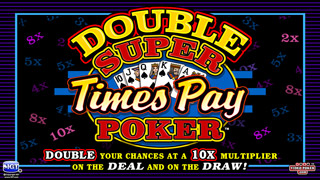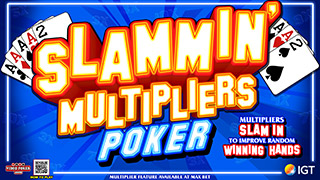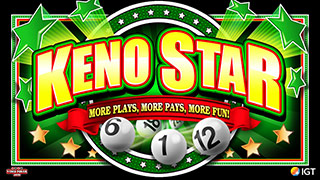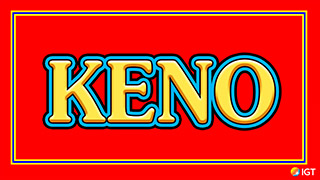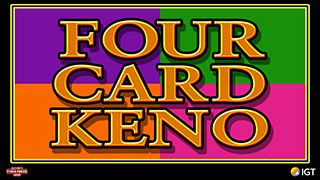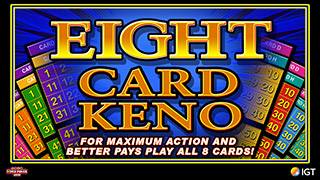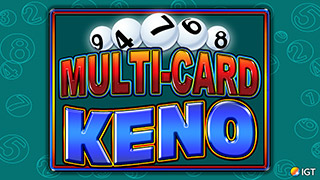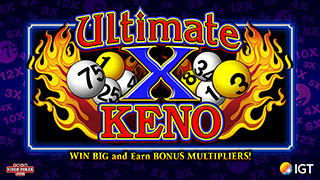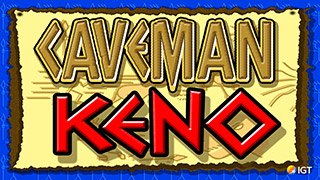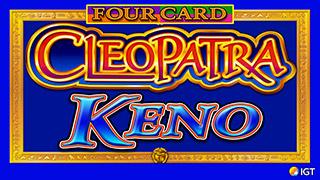RNG Multi hand vs STP: How does it work?
-
Lucky Larry
- Video Poker Master
- Posts: 2693
- Joined: Sat Dec 13, 2008 7:35 pm
RNG Multi hand vs STP: How does it work?
Does anyone know how the RNG works on MH vs Super Times Pay?
Assume I'm playing the same game say, JOB.
If I'm playing MH game and go from 5 to 10 hands I assume the same RNG is running and I assume it stays in its sequence. If I'm playing STP and switch from 3 to 5 or 10 hands does the same thing occur or are the 3, 5, 10 play on different sequences?
Trying to figure out some of the technical aspects.
LL
Assume I'm playing the same game say, JOB.
If I'm playing MH game and go from 5 to 10 hands I assume the same RNG is running and I assume it stays in its sequence. If I'm playing STP and switch from 3 to 5 or 10 hands does the same thing occur or are the 3, 5, 10 play on different sequences?
Trying to figure out some of the technical aspects.
LL
-
cddenver
- Video Poker Master
- Posts: 2269
- Joined: Tue Mar 13, 2007 9:54 pm
If I'm playing MH game and go from 5 to 10 hands I assume the same RNG is running and I assume it stays in its sequence. If I'm playing STP and switch from 3 to 5 or 10 hands does the same thing occur or are the 3, 5, 10 play on different sequences?
There's one RNG per machine regardless of what game on the machine is being played or how many lines are being played. If the machine has other games like Keno and video slots or blackjack it's still just one RNG.
The RNG runs continuously, even when you're in the process of switching denominations, game, or number of lines. It doesn't stop after a deal; it continues to run as you peruse the dealt hand and decide on which cards to hold.
There's one RNG per machine regardless of what game on the machine is being played or how many lines are being played. If the machine has other games like Keno and video slots or blackjack it's still just one RNG.
The RNG runs continuously, even when you're in the process of switching denominations, game, or number of lines. It doesn't stop after a deal; it continues to run as you peruse the dealt hand and decide on which cards to hold.
-
shadowman
- Video Poker Master
- Posts: 3587
- Joined: Mon Oct 23, 2006 5:42 pm
While I don't know when the RNG is seeded, it's likely that it happens when switching denominations, number of hands and games. This throws another variation into the sequence.
-
Lucky Larry
- Video Poker Master
- Posts: 2693
- Joined: Sat Dec 13, 2008 7:35 pm
cddenver, Shadowman,
I understand the RNG is continuously running. My question may be more related to the sequence that is running.
If I understand the concept each game JOB, DW, etc. has a set of numbers that correspond to hands that will be dealt. So when I hit the button, the RNG spits out a number that corresponds to a specific hand based on that game. Right?
How does a "variation" impact the sequence?
If I change from 5 to 10 hands on a multi-hand game does the RNG sequence continue or this too a variation that places me in a different location in the sequence?
One more question. How long does it take the RNG to run through the entire number sequence?
My questions may be irrelevant to my end results but if I better understand the theoretical operations I feel more confident.
Thanks,
LL
I understand the RNG is continuously running. My question may be more related to the sequence that is running.
If I understand the concept each game JOB, DW, etc. has a set of numbers that correspond to hands that will be dealt. So when I hit the button, the RNG spits out a number that corresponds to a specific hand based on that game. Right?
How does a "variation" impact the sequence?
If I change from 5 to 10 hands on a multi-hand game does the RNG sequence continue or this too a variation that places me in a different location in the sequence?
One more question. How long does it take the RNG to run through the entire number sequence?
My questions may be irrelevant to my end results but if I better understand the theoretical operations I feel more confident.
Thanks,
LL
-
shadowman
- Video Poker Master
- Posts: 3587
- Joined: Mon Oct 23, 2006 5:42 pm
cddenver, Shadowman,
I understand the RNG is continuously running. My question may be more related to the sequence that is running.
If I understand the concept each game JOB, DW, etc. has a set of numbers that correspond to hands that will be dealt. So when I hit the button, the RNG spits out a number that corresponds to a specific hand based on that game. Right?
How does a "variation" impact the sequence?
If I change from 5 to 10 hands on a multi-hand game does the RNG sequence continue or this too a variation that places me in a different location in the sequence?
One more question. How long does it take the RNG to run through the entire number sequence?
My questions may be irrelevant to my end results but if I better understand the theoretical operations I feel more confident.
The RNG number corresponds to a card. The RNG runs until you press deal and then a sequence of 5 numbers corresponds to a hand. Then when you select the hold cards and hit draw, the RNG is stopped again and the current sequence of N cards is selected. The RNG never stops running so millions of possible cards/hands pass by every few seconds.
The time for a full iteration of the RNG is not known as the details of the algorithm have not been made public. If it were a 32 bit algorithm then 4 billion numbers are possible. I've estimated about 200K numbers/second is not unreasonable which would mean about 5-6 hours. Now, it could be 2 billion numbers or it could be a 64 bit algorithm which would throw all my numbers way off. In addition, each time the RNG is seeded it is restarted at a different spot in the sequence.
I don't think you're going to get very far if your goal is to make predictions.
I understand the RNG is continuously running. My question may be more related to the sequence that is running.
If I understand the concept each game JOB, DW, etc. has a set of numbers that correspond to hands that will be dealt. So when I hit the button, the RNG spits out a number that corresponds to a specific hand based on that game. Right?
How does a "variation" impact the sequence?
If I change from 5 to 10 hands on a multi-hand game does the RNG sequence continue or this too a variation that places me in a different location in the sequence?
One more question. How long does it take the RNG to run through the entire number sequence?
My questions may be irrelevant to my end results but if I better understand the theoretical operations I feel more confident.
The RNG number corresponds to a card. The RNG runs until you press deal and then a sequence of 5 numbers corresponds to a hand. Then when you select the hold cards and hit draw, the RNG is stopped again and the current sequence of N cards is selected. The RNG never stops running so millions of possible cards/hands pass by every few seconds.
The time for a full iteration of the RNG is not known as the details of the algorithm have not been made public. If it were a 32 bit algorithm then 4 billion numbers are possible. I've estimated about 200K numbers/second is not unreasonable which would mean about 5-6 hours. Now, it could be 2 billion numbers or it could be a 64 bit algorithm which would throw all my numbers way off. In addition, each time the RNG is seeded it is restarted at a different spot in the sequence.
I don't think you're going to get very far if your goal is to make predictions.
-
Lucky Larry
- Video Poker Master
- Posts: 2693
- Joined: Sat Dec 13, 2008 7:35 pm
Shadowman,
Thanks for the response. Not predictions..I'm too simple minded for that. Although my premonitions can really be uncanny, down to the sequence of cards when it flashes into my mind...an inherited gift.
So it is possible that it could take 5-6 hours for the sequence to be completed. Do we know how the sequence is constructed?
I'm asking because based on observation,(Which is anecdotal) I have seen a machine not have hits and then someone else sits down and gets hit after hit. Timing! But I have also seen player after player sit at the same VP machine and no one hits then later the hits seem to be coming one after another regardless of the player.
Just trying to get a better understanding of how the RNG operates. I spend a fairly decent amount of time time practicing VP, playing VP, or wishing I was playing VP. Generally, I like to know the operations/concepts of things when I put in that much time on any interest whether it is landscaping, investing, or gambling. The last two which involve "my money" so I seem to spend a lot of time trying to learn.
Thanks again for answering these type questions.
LL
Thanks for the response. Not predictions..I'm too simple minded for that. Although my premonitions can really be uncanny, down to the sequence of cards when it flashes into my mind...an inherited gift.
So it is possible that it could take 5-6 hours for the sequence to be completed. Do we know how the sequence is constructed?
I'm asking because based on observation,(Which is anecdotal) I have seen a machine not have hits and then someone else sits down and gets hit after hit. Timing! But I have also seen player after player sit at the same VP machine and no one hits then later the hits seem to be coming one after another regardless of the player.
Just trying to get a better understanding of how the RNG operates. I spend a fairly decent amount of time time practicing VP, playing VP, or wishing I was playing VP. Generally, I like to know the operations/concepts of things when I put in that much time on any interest whether it is landscaping, investing, or gambling. The last two which involve "my money" so I seem to spend a lot of time trying to learn.
Thanks again for answering these type questions.
LL
-
shadowman
- Video Poker Master
- Posts: 3587
- Joined: Mon Oct 23, 2006 5:42 pm
The reason you see differences is simply because it is random. What you are describing is exactly what one should expect. One time you see one set of events and another time something completely different. Nothing predictable from one time to the next.
BTW, I would guess the more recent machines probably use a 64 bit algorithm. That essentially means you have to multiply the 5-6 hours by 4 billion. In other words, it will never repeat although card sequences themselves will repeat within the sequence.
Most RNGs use a bit manipulation type algorithm.
http://en.wikipedia.org/wiki/Random_number_generation
BTW, I would guess the more recent machines probably use a 64 bit algorithm. That essentially means you have to multiply the 5-6 hours by 4 billion. In other words, it will never repeat although card sequences themselves will repeat within the sequence.
Most RNGs use a bit manipulation type algorithm.
http://en.wikipedia.org/wiki/Random_number_generation
-
spxChrome
- VP Veteran
- Posts: 819
- Joined: Tue Nov 07, 2006 9:21 pm
What I like is VP supposedly uses an RNG which is "random" but their is a guaranteed payback % on all games listed.
I will never figure that one out.... a random guarentee
I will never figure that one out.... a random guarentee
-
cddenver
- Video Poker Master
- Posts: 2269
- Joined: Tue Mar 13, 2007 9:54 pm
What I like is VP supposedly uses an RNG which is "random" but their is a guaranteed payback % on all games listed.
I will never figure that one out.... a random guarentee
There is no guaranteed payback. This is what determines the maximum long term return for any VP game:
1) A random number generator.
2) The rules of a particular VP game (i.e., a deck of cards and the paytable).
3) Perfect play strategy.
4) Millions of hands played.
Play millions of hands in a casino, tracking your return. Play millions of hands on a PC, tracking your return. Play millions of hands with a real deck of cards. When you're done, compare the bottom line from all three and the returns will be...the same! (Plus or minus a little bit).
Just playing a game doesn't guarantee that you'll get the theoretical long term return. Play less than an optimal play strategy and you're guaranteed not to achieve that theoretical long term return. That's why a casino's take on a game is a few percent better than what you'd expect by just looking at the theoretical return - nonoptimal play and misplays.
I will never figure that one out.... a random guarentee
There is no guaranteed payback. This is what determines the maximum long term return for any VP game:
1) A random number generator.
2) The rules of a particular VP game (i.e., a deck of cards and the paytable).
3) Perfect play strategy.
4) Millions of hands played.
Play millions of hands in a casino, tracking your return. Play millions of hands on a PC, tracking your return. Play millions of hands with a real deck of cards. When you're done, compare the bottom line from all three and the returns will be...the same! (Plus or minus a little bit).
Just playing a game doesn't guarantee that you'll get the theoretical long term return. Play less than an optimal play strategy and you're guaranteed not to achieve that theoretical long term return. That's why a casino's take on a game is a few percent better than what you'd expect by just looking at the theoretical return - nonoptimal play and misplays.
-
spxChrome
- VP Veteran
- Posts: 819
- Joined: Tue Nov 07, 2006 9:21 pm
But still its a contradiction.
I mean if its "Random" and each hand is independant of the last hand then its possible that it could deal 4 Billion royal flushes in a row.
But were would the fun be in that
I mean if its "Random" and each hand is independant of the last hand then its possible that it could deal 4 Billion royal flushes in a row.
But were would the fun be in that



